
West Asia: A key player in commodity trade and supply chain solutions.
West Asia occupies a crucial geopolitical position at the crossroads of Europe, Africa, and Asia. It serves as a bridge between different regions and is strategically located near important sea routes, including the Mediterranean Sea, the Red Sea, and the Persian Gulf. Its location has made it a vital hub for trade, transportation, and communication, shaping global politics and international relations. West Asia possesses abundant reserves of oil and natural gas, making it a major player in global energy markets. The region is home to some of the world's largest oil producers and exporters. As a result, West Asia has a significant impact on global energy prices, supply, and geopolitics. Many countries depend on the region's energy resources to meet their domestic and industrial energy needs.
West Asia faces various security challenges that have global implications. Conflicts, political instability, and terrorism have affected the region and have had repercussions beyond its borders. Issues such as the Israeli-Palestinian conflict, the Syrian civil war, and the threat of extremist groups have drawn international attention and necessitated diplomatic efforts and interventions. West Asia is characterized by scarce water resources, and access to water is a significant concern. The region faces challenges related to water scarcity, water management, and disputes over shared water sources. These issues have implications for regional stability, agriculture, and the livelihoods of millions of people.
The Middle East is the connecting link between the three continents: Africa, Asia and Europe. In addition to the important geographical location of the Middle East, the widespread existence of international highways in the region has led to the increasing greed of international powers to dominance it. The Bosphorus and Dardanelles in Turkey, the Suez Canal in Egypt, the Strait of Hormuz in Iran, Bab al-Mandeb in Yemen, the Persian Gulf, the Gulf of Aden, etc. are considered as part of the strategic importance of this region. A look at historical developments in the past century shows that the world powers have repeatedly tried tomaster it in order to expand their influence in this region.
West Asia is a hub for diplomatic activities and negotiations. The region has been a center for discussions and initiatives related to regional security, peace processes, and conflict resolution. Initiatives such as the Arab League, the Gulf Cooperation Council, and the Organization of Islamic Cooperation have been established to foster cooperation and address regional challenges.
The Russians' quest for seas and control of Turkey's vital straits, long British colonization of the Middle East, French influence in the Shamat region, and US presence throughout the Middle East after World War II have always led to regional instability. The Middle East, as the heart of Eurasia, is geo strategically the crossing point of land, rail and air over a large part of the international community. This region is considered as the transit point of air and land transit between Europe and Africa with India and East Asia, which adds to its strategic dimensions.
The economies of West Asian countries, fueled by oil revenues, have grown rapidly over the years. These economies have attracted substantial foreign investment, fostered trade relationships, and contributed to global economic development. The region's economic influence extends to sectors beyond oil, such as finance, real estate, tourism, and construction. West Asia's economic strength and potential make it an important partner for many countries and multinational corporations. West Asia is the birthplace of several major world religions, including Islam, Christianity, and Judaism. It is home to significant historical and cultural sites, such as the ancient cities of Jerusalem, Mecca, and Babylon. The region's rich history and diverse cultural heritage attract tourists, scholars, and researchers from around the world.
-
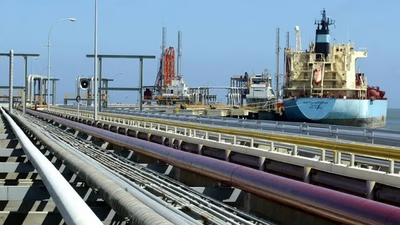
West Asia, rich in oil and gas reserves, plays a crucial role in the global energy market. Countries such as Saudi Arabia, Iran, Iraq, Kuwait, the UAE, and Qatar are key suppliers of these resources, which significantly contribute to their economic growth. The revenue from energy exports has enabled substantial foreign exchange reserves and funding for infrastructure development and social welfare programs. Additionally, West Asian nations have diversified their economies by investing in sectors like petrochemicals and tourism. Sovereign wealth funds (SWFs) established by these countries manage surplus funds and invest globally, enhancing financial market stability. Despite the dominance of oil and gas, there is a growing focus on agriculture to ensure food security. Countries like Saudi Arabia and Qatar are implementing agricultural technologies to boost local production. The region"s strategic location has attracted foreign investment and trade opportunities, with nations developing industrial zones and free trade areas to facilitate business activities. Overall, West Asia"s economic landscape is shaped by its energy resources while also adapting to new challenges through diversification.
-
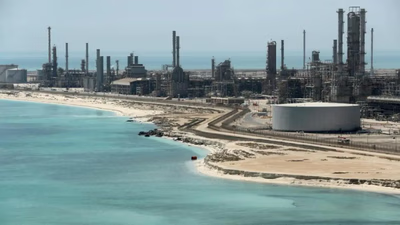
West Asia, primarily known for its oil-dependent economies, faces significant challenges due to its reliance on crude oil exports. Countries like Saudi Arabia, Iraq, and the UAE have historically depended on oil revenues for economic stability and growth. This overreliance has hindered diversification into other sectors such as manufacturing and services, making these economies vulnerable to global market fluctuations and political instability. In response, many nations are initiating economic diversification strategies aimed at reducing dependence on oil. The UAE exemplifies this shift by investing in tourism, finance, and renewable energy. Additionally, sovereign wealth funds are being established to invest oil revenues in international markets for long-term stability. As the region recognizes the need for sustainable energy solutions, investments in renewable projects are increasing. Despite these efforts, the World Bank forecasts modest economic growth for oil-exporting countries in 2021 due to ongoing challenges in global demand and production agreements. The heavy reliance on oil continues to shape fiscal policies and government budgets across West Asia, with fluctuations in oil prices posing risks to economic stability.
-
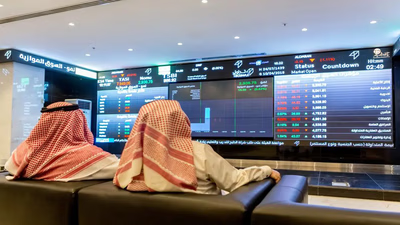
Commodity exchanges play a crucial role in facilitating trade across Asia, particularly in the Middle East and West Asia. With 10 of the 22 major commodity futures exchanges located in Asia, these platforms enable buyers and sellers to engage in trading various commodity contracts. The Dubai Commodity Center, established in 2002, exemplifies the region"s commitment to creating a robust infrastructure for commodity trading. The Dubai Gold and Commodity Exchange is notable for its automated trading of derivatives for commodities like gold and silver, operating primarily in US dollars. This exchange has positioned Dubai as a global hub for financial markets. Additionally, the Dubai Mercantile Exchange has gained prominence as a key energy market since its inception, although competition has emerged with the Shanghai Energy Exchange. In Iran, the Commodity Exchange operates under specific regulations that require brokers to manage purchase orders meticulously. Turkey"s stock market history dates back centuries, with modern exchanges evolving significantly over time. Overall, these exchanges not only facilitate local trade but also connect regional markets to global commodity networks.
-
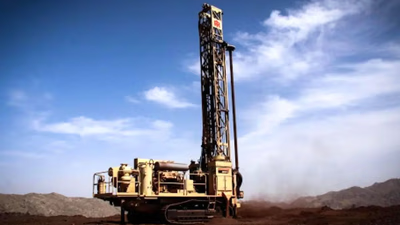
West Asian governments are actively pursuing economic diversification to reduce reliance on oil revenues. They are investing in various sectors, including manufacturing, tourism, finance, technology, renewable energy, and agriculture. By establishing industrial zones and promoting local production capabilities, these countries aim to boost exports and attract foreign direct investment (FDI). The development of financial sectors into regional hubs is also a priority, with efforts to promote Islamic finance and expand capital markets. A skilled workforce is essential for this transition; thus, investments in education and vocational training are being made. Renewable energy projects are gaining traction as countries seek to harness solar and wind power for clean energy production. While non-oil goods currently play a minor role in the economy compared to other regions, their importance is expected to grow significantly. The shift towards an oil-independent economy involves long-term strategies that require sustained policy reforms and investments.
Additionally, the tourism sector is being developed due to the region"s rich cultural heritage and natural attractions. Knowledge-based industries such as IT and R&D are also being prioritized through the establishment of technology parks and support for startups. Overall, West Asia is making strides towards a more diversified economic landscape that can sustain growth beyond oil. "
-
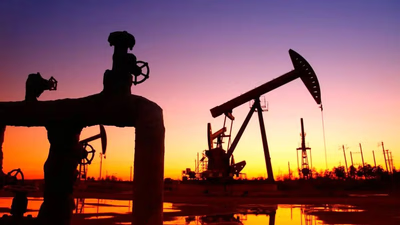
West Asia"s economies are primarily driven by the oil and gas sector, with major producers like Saudi Arabia, Iraq, and Iran leading in exports. These countries have heavily invested in petrochemical industries, producing a range of chemical products. However, there is a growing shift towards renewable energy sources as nations like the UAE and Jordan commit to solar and wind projects to diversify their energy portfolios. The region is also experiencing a boom in the information technology sector, particularly in Israel and Turkey, focusing on software development and cybersecurity. Manufacturing is being promoted across various industries to reduce oil dependency, with significant advancements noted in automotive and electronics. The construction sector has seen rapid growth due to urbanization and investment, particularly in the UAE and Qatar. Innovative agricultural practices are being adopted to enhance food security despite challenging climatic conditions. Additionally, West Asia"s financial sectors are robust, with cities like Dubai emerging as key financial hubs. Overall, West Asia is diversifying its economy while maintaining its traditional strengths.
-
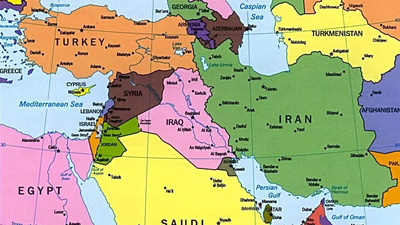
West Asia"s strategic location at the crossroads of Europe, Africa, and Asia makes it a vital hub for trade and communication. The region is rich in oil and natural gas reserves, significantly influencing global energy markets and prices. However, West Asia faces security challenges, including political instability and conflicts that have international repercussions. Water scarcity is another pressing issue affecting agriculture and livelihoods. The Middle East serves as a critical link between continents, with key maritime routes like the Suez Canal and the Strait of Hormuz enhancing its geopolitical importance. Historical influences from global powers have contributed to regional instability but also fostered diplomatic initiatives aimed at conflict resolution. Economically, West Asian countries have experienced rapid growth driven by oil revenues, attracting foreign investment across various sectors such as finance and tourism. The region"s cultural heritage, being the birthplace of major world religions and home to significant historical sites, further enhances its global significance.
-

West Asia"s tourism industry is diverse, with countries like Egypt, Jordan, and the UAE attracting millions of visitors. Egypt"s ancient pyramids and Jordan"s Petra are major draws, while the UAE has become a hub for luxury tourism. Religious tourism is significant, with Saudi Arabia hosting millions for Hajj and Iran attracting Shia pilgrims. Medical tourism is also growing in countries like Jordan and Israel, offering advanced healthcare services. The region"s natural landscapes provide opportunities for ecotourism, particularly in Oman and Qatar. Despite challenges from geopolitical tensions, many nations are enhancing their tourism infrastructure to attract more visitors. Business tourism is thriving in cities like Dubai and Doha, which host international events. Cultural heritage sites across the region contribute to its appeal, with numerous UNESCO World Heritage sites promoting cultural understanding.
Overall, West Asia"s tourism sector is evolving and plays a crucial role in economic growth. "







